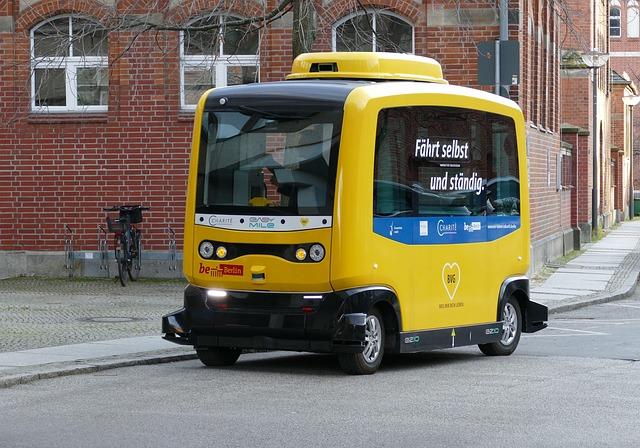WaymoŌĆÖs Autonomous Vehicle Service Set to Revolutionize HoustonŌĆÖs Transportation
Houston Embraces Next-Generation Mobility with WaymoŌĆÖs Driverless Cars
Houston is on the verge of a transformative shift in urban transportation as Waymo, AlphabetŌĆÖs autonomous driving division, prepares to introduce its fully self-driving vehicle service across the city. This pioneering deployment represents HoustonŌĆÖs first large-scale adoption of driverless technology, promising to redefine how residents and visitors traverse the sprawling metropolitan area. By leveraging advanced artificial intelligence and sensor systems, WaymoŌĆÖs fleet aims to improve traffic safety, ease congestion, and expand mobility options for underserved neighborhoods.
Beyond simply providing a new mode of transport, the arrival of autonomous vehicles in Houston is expected to deliver a range of benefits, including:
- Round-the-Clock Availability: Autonomous cars operate continuously without the limitations of human driver shifts, offering greater flexibility.
- Environmental Advantages: Smarter driving algorithms optimize routes and speeds, reducing fuel consumption and lowering emissions.
- Economic Growth: The initiative is projected to generate new technology-focused jobs and ancillary support roles.
- Enhanced Traffic Analytics: Real-time data collection enables smarter urban planning and traffic management strategies.
| Feature | Anticipated Benefit |
|---|---|
| Autonomous Ride Availability | Expanded reach of public transit options |
| AI-Driven Navigation | Shorter and more efficient commutes |
| Advanced Safety Sensors | Reduction in traffic accidents |
Enhancing Road Safety and Infrastructure for HoustonŌĆÖs Autonomous Future
HoustonŌĆÖs extensive roadways and heavy traffic volumes stand to benefit significantly from the integration of WaymoŌĆÖs autonomous vehicles. Human error, which accounts for the majority of traffic incidents, could be drastically reduced as AI-powered cars anticipate hazards and respond faster than human drivers. This technology is particularly promising for mitigating accidents during peak traffic hours and curbing risky behaviors such as distracted or aggressive driving, which are common challenges in Houston.
To fully capitalize on these safety improvements, HoustonŌĆÖs urban planners and policymakers must adapt infrastructure to support autonomous technology. Key priorities include:
- Implementation of Intelligent Traffic Systems: Traffic signals and road sensors that communicate directly with driverless vehicles.
- Standardized Road Markings: Clear, consistent lane lines and signage to aid AI navigation accuracy.
- Designated Loading Zones: Specific areas for autonomous vehicle pick-ups and drop-offs to prevent traffic bottlenecks.
- Robust Data Integration: Enhanced connectivity between city traffic management and autonomous vehicle networks.
| Aspect | Projected Impact |
|---|---|
| Traffic Flow | More efficient movement through synchronized vehicle coordination |
| Accident Frequency | Decline due to precise AI decision-making |
| Infrastructure Needs | Upgrades to support vehicle-to-infrastructure communication |
| Urban Congestion | Potential alleviation through optimized routing algorithms |
Economic Impact: Opportunities and Challenges for HoustonŌĆÖs Business Community
The introduction of WaymoŌĆÖs autonomous vehicles is poised to reshape HoustonŌĆÖs economic landscape, particularly affecting local businesses and employment sectors. Logistics and delivery services stand to benefit from reduced operational costs and enhanced efficiency, while retail and hospitality industries may see increased customer access due to improved transportation options. However, traditional ride-hailing and taxi services face intensified competition, necessitating rapid adaptation to remain viable.
Despite these promising prospects, the transition to driverless technology presents challenges, notably the potential displacement of driving-related jobs. Addressing this requires proactive workforce development and collaboration between government agencies and business leaders. Essential focus areas include:
- Comprehensive Job Retraining Programs: Equipping displaced workers with skills for emerging tech roles.
- Investment in Digital Infrastructure: Building the technological backbone to support autonomous vehicle operations.
- Balanced Policy Frameworks: Encouraging innovation while safeguarding local business interests.
| Economic Dimension | Opportunity | Challenge |
|---|---|---|
| Logistics | Lower transportation and delivery expenses | Resistance from traditional carriers to adopt new tech |
| Employment | Creation of specialized technology jobs | Job losses in driving professions |
| Consumer Mobility | Improved access to transportation | Potential disparities in technology availability |
How Houston Residents Can Adapt to the Autonomous Vehicle Era
With WaymoŌĆÖs driverless cars soon navigating HoustonŌĆÖs streets, residents should prepare for new traffic dynamics and safety protocols. Pedestrians and cyclists must exercise caution, always yielding to autonomous vehicles that rely on sophisticated sensors to detect their surroundings. Making eye contact with drivers is no longer an option, so waiting for clear vehicle stops before crossing is essential. Additionally, commuters should expect changes in traffic patterns as autonomous cars communicate to optimize flow, which may alter traditional congestion points and signal timings.
To facilitate a smooth transition, Houston residents are encouraged to:
- Stay updated through official city communications about autonomous vehicle zones and regulations.
- Report any unusual or unsafe behavior observed from autonomous vehicles to local authorities promptly.
- Engage in community discussions and educational workshops organized by Waymo or municipal planners.
- Exercise patience and understanding as the technology evolves through real-world application.
| Advice | Recommended Action |
|---|---|
| Crosswalk Safety | Wait for autonomous vehicles to come to a complete stop before crossing |
| Sharing the Road | Maintain predictable movements; avoid sudden lane changes |
| Information Access | Use official channels for updates and alerts |
| Patience | Allow extra travel time as traffic patterns adjust |
Conclusion: HoustonŌĆÖs Journey Toward a Driverless Future
As Waymo prepares to roll out its fully autonomous vehicle service in Houston, the city is positioned at the forefront of a transportation revolution. This initiative not only underscores HoustonŌĆÖs emergence as a hub for cutting-edge technology but also prompts critical discussions about safety, infrastructure modernization, and regulatory oversight. As residents, businesses, and officials navigate this new mobility landscape, the long-term effects on HoustonŌĆÖs economy, urban environment, and daily life will become increasingly apparent. Stay connected for ongoing updates on this landmark development and its impact on the cityŌĆÖs future.
ŌĆö-
Author : Miles Cooper
Publish date : 2025-11-21 01:41:00
Copyright for syndicated content belongs to the linked Source.
ŌĆö-
1 ŌĆō 2 ŌĆō 3 ŌĆō 4 ŌĆō 5 ŌĆō 6 ŌĆō 7 ŌĆō 8













